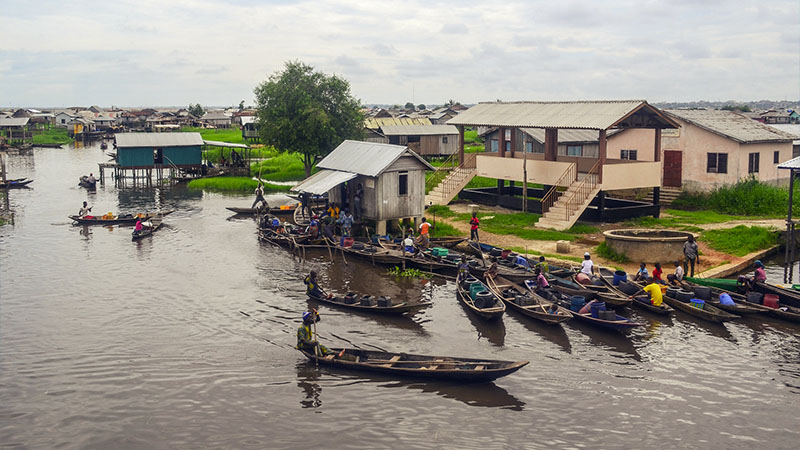Exclusive content

The Royal Belgian Institute of Natural Sciences (IRSNB) and the Benin Fisheries and Oceanological Research Institute (IRHOB) have recently unveiled the outcomes of their joint endeavors. This partnership, integral to the CEBioS program aimed at safeguarding wild shrimp populations, marked a milestone during a workshop held on March 21, 2024, in Ganvié 2.
Stakeholder Engagement
The workshop, organized by the Institute of Fisheries and Oceanological Research of Benin (IRHOB/CBRSI) in conjunction with the IRSNB/CEBioS, saw active participation from various stakeholders. Notably, fishermen, village chiefs, the fishermen’s association, and fish merchants contributed their insights, emphasizing the collaborative nature of the initiative.
Geneviève Lacroix, representing CEBioS, underscored the paramount importance of adopting sustainable fishing practices for the well-being of future generations. She emphasized the need to heed the recommendations stemming from the collaborative research efforts between IRHOB and IRSNB.
Insights from Research
Researchers presented their findings to the local community, highlighting crucial aspects of their studies. Sylvain Gozingan’s work focused on implementing the “COHERENS” hydrodynamic model to understand shrimp distribution in the Lake Nokoué Océan complex. Meanwhile, Dr. Wilfried Sintondji’s research aimed to characterize the spatiotemporal distribution of shrimp in the Lake Nokoué – Cotonou Channel complex, providing valuable insights into the shrimp’s life cycle and recommendations for their protection.
The workshop facilitated an interactive dialogue between researchers and participants, leading to valuable exchanges and recommendations. Fishermen expressed their commitment to responsible shrimp management and sought assistance and training in aquaculture to align with recommended fishing practices.
Support from Local Authorities
Representatives of lakeside villages expressed gratitude to IRHOB and IRSNB for heeding their recommendations and hosting the workshop in their locality. Their support underscores the community’s dedication to achieving the project’s objectives.
Professor Zacharie Sohou, Director of IRHOB, lauded the collaborative efforts as instrumental in revitalizing the shrimp sector and paving the way for sustainable fishery management. The scientific collaboration not only holds promise for the conservation of fishery resources but also offers avenues for the rejuvenation of the shrimp industry in Benin.